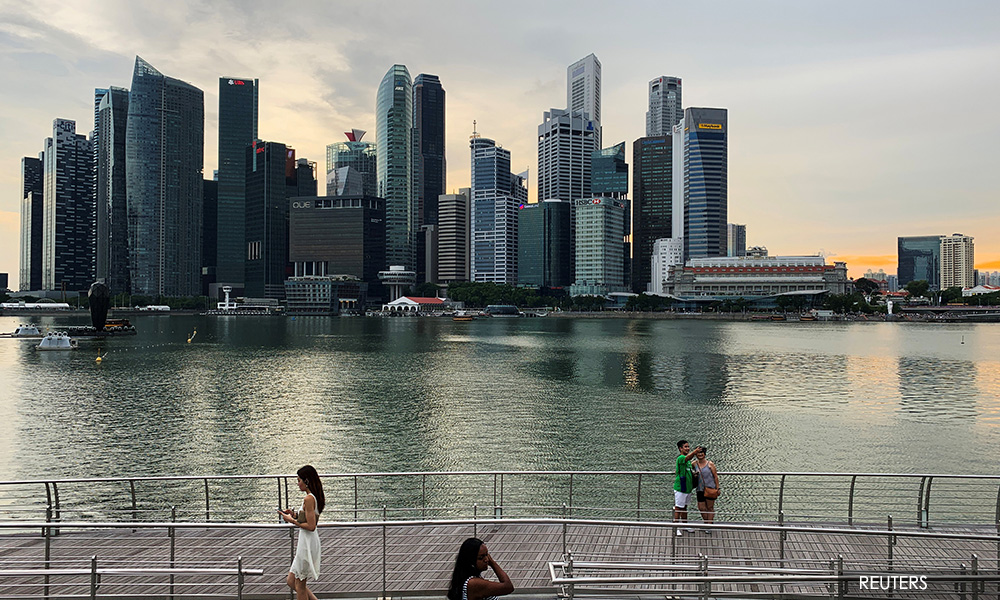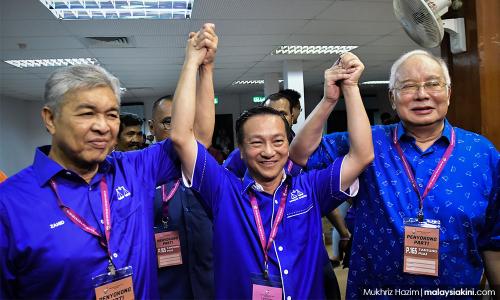It’s not the end of the world yet for Harapan
COMMENT | Much ink has already been spilt about the causes and nature of the voting patterns, even as the "shocking" outcome of the Tanjung Piai by-election reverberates in the public psyche.
Virtually all of the commentaries argue that the election result was a demonstration and emblematic of pent-up anger, particularly in relation to the Chinese community, that had been simmering for some time.
For it cannot be denied that in general, the Chinese voters have become – within such a short period of time – disillusioned and cynical by what they perceive to be unfulfilled promises by Pakatan Harapan.
Before assuming power, Harapan captured the public imagination with a "Malaysia Baru" characterised by meaningful and sustainable reforms across the board that supposedly expresses the deep-seated yearnings and aspirations of Malaysians for a better and more secure future for all. It is reasonable to assume here, therefore, that the electorate now feels that they have been promised a “pie in the sky,” and hence to borrow another phrase, “led up the garden path.”
Nevertheless, it is still not the end of the world for Harapan yet, depending on how the lessons of Tanjung Piai are learnt and used as a corrective mechanism to move forward in regaining voters’ confidence and trust, and ensuring the national agenda to build a "Malaysia Baru" is achieved before GE15.
The first area to focus on is the bread and butter issues or the cost of living. The government was right in abolishing the GST. Its underlying premise is too "simplistic" – broadening the tax base as a horizontal approach.
Under the previous regime, the rakyat was hit by a combination of the inflationary impact of GST and weakening ringgit. In the era of fiat currencies, the role of taxation is primarily to regulate aggregate demand and hence serves to drain or stimulate purchasing power, and therefore has an impact on the cost of living.

Hence to broaden the tax base, the government must also adopt a vertical approach by de-centralising fiscal powers or enhancing fiscal autonomy of the states (and by inclusion and extension that of local authorities).
This would lessen the burden of the federal government, enabling it to shift existing allocations to other direct development expenditures that will help in reducing the cost of living for the rakyat such as government-sponsored up- and mid-stream activities in agriculture (food security), which include livestock farming, aqua-farming and even vertical farming in urban areas. In this, state governments would also be in a better position to complement and supplement the role of the federal government in reducing and alleviating the cost of living.
As an integral part of de-centralisation, selected state governments should be empowered to set up state-owned banks – which would obviate the need to hike up assessment rates as a main source of revenue, for example.
A certain portion of the state government’s revenue shall be deposited in its account with the state-owned bank to earn interest on behalf of the rakyat. Monetary policy, with its knock-on effect on interest rates, continues to be under Bank Negara. As it is, the primary function of the state-owned bank shall be to provide funding to the state government for its development agenda.
State-owned banks could also provide funding for the state government to be the employer of last resort (ELR) on a permanent basis (e.g. through local authorities) or as a transition process to the jobs market via on-the-job training as well as skills progression in the form of upskilling and reskilling at no cost to the private sector. This would help reduce business costs throughout the supply chain and, in turn, the cost of living.
ELR or Jobs Guarantee (JG) can be deployed, furthermore, as an inflation stabiliser because it is anchored on a "non-competitive wage" model, as well as not competing with the ‘multiplier effect’ from infrastructural spending. At the same time, it would complement the public-private sector partnerships (PPP) funding model.
As importantly, state governments through state-owned banks must capitalise on the opportunity to transform private sector monopoly to public sector monopoly through direct and indirect intervention.
The federal and state government, for instance, could assist oil palm smallholders by providing financial protection based on their respective share of funding by smoothing out currency and demand fluctuations in overseas markets similar to forward contracts between private parties, in addition to existing measures of subsidies and mandatory use of biofuels.

Smallholders will be compensated when global CPO prices fall below a certain range. Conversely, if prices were upwards within a fixed or agreed range, surfeit income could either accrue to the federal and state government or to the smallholders but subject to tax.
On the issue of race and religion, the government is not doing enough to counter the toxic mix of the ethnoreligious narrative of Muafakat Nasional. Harapan must not allow the current semi-fluid political configuration (shifting alliances from the opposition to the government in the form of crossovers) to distract it from going all out to compete and win the Malay vote.
The government should, therefore, move on from assuring the Malay community to capturing their hearts and minds away from Muafakat Nasional. "Perpaduan ummah" is not the priority at the moment – getting the majority of Malays to change their political outlook and mindset is.
Harapan in general and Bersatu in particular as a champion of Malay rights and interests are the gateway to perpaduan ummah and not the other way around. To do that, the government must ensure that rahmatan lil’ alamin is not merely a shift in rhetoric but in substance as well.
Ketuanan Melayu-Islam as championed by Muafakat Nasional must be replaced by Kepimpinan Melayu-Islam. This will have the effect of dampening and relieving the siege mentality among all communities – even in relation to East Malaysia.
Perhaps a short declaration or statement by Harapan on Kepimpinan Melayu is in order as the basis and framework for nation-building in the context of a multi-ethnic, multi-religious and multi-cultural Malaysia as a matter of clarification and assurance to the rakyat.

Since Tanjung Piai being the southernmost tip of the Asian continent is a stone’s throw away from Singapore, a discussion of bilateral relations with the island state is very pertinent. Like it or not, Singapore is a factor in both Malaysia’s foreign and domestic policy. The government has to be very mindful, therefore, of the impact of Singaporean presence in the local economy.
It has to strike the right balance between openness to Singapore and safeguarding national sovereignty and interests without the need to resort to raising the spectre of the bogeyman which should now be a thing of the past under Harapan.
Economic integration must continue to develop further to the point of a Common Market or Economic Area 2.0 post-Separation.
The purpose is also to ensure that the burden of economic development is to an extent visibly shared by Singapore in a mutually reciprocal and co-dependent relationship, thus reinforcing the tangible benefits of a Singaporean presence in the local economy.
In short, the rakyat will be better exposed to a globalisation that is carefully managed according to the framework of regionalisation. Yet paradoxically at the same time, the rakyat will come to have a better appreciation that certain matters (within the framework, no less) are beyond the control of the federal and state government due to the compelling logic and forces of regionalisation.
In conclusion, it is also true that Harapan must critically ensure that the implementation of its communications strategy and approach is improved. Harapan must solidify and increase its engagements and outreach with the rakyat. Last but not least, Harapan must ensure that it lives up to its rhetoric and is truly different from the previous Umno-BN regime.
JASON LOH SEONG WEI is head of Social, Law & Human Rights at Emir Research, a think-tank focused on data-driven policy research.
The views expressed here are those of the author/contributor and do not necessarily represent the views of Malaysiakini.
RM12.50 / month
- Unlimited access to award-winning journalism
- Comment and share your opinions on all our articles
- Gift interesting stories to your friends
- Tax deductable
